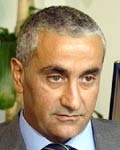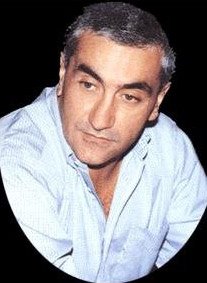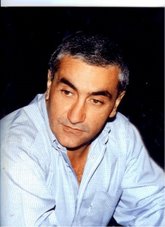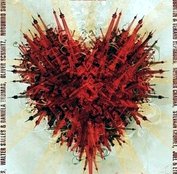
According to the September 16, 1982, Congressional report on the disappearance of the Poet, the ship was bought by Hawaiian Eugenia in May 1979. The Camp David Accords between Israel and Egypt were signed on September 17, 1978, and the pact ensured a steady supply of U.S. arms to both Israel and Egypt.
EATSCO was established by Edwin Wilson, later convicted and jailed for smuggling U.S. weapons to Libya, as a CIA arms smuggling front company in 1979. Longtime CIA covert operations officer Thomas Clines headed up EATSCO and another CIA front, API Distributors, Inc., an oil well drilling supply company with operations in Houston. Clines' Systems Services International Inc., founded in 1978, held a 49 percent stake in EATSCO. Clines also owned International Research and Trade Ltd. (IRT), incorporated in Delaware in December 1980 and International Research and Trade Ltd. incorporated in Bermuda in April 1979.
EATSCO's President was Hussein K.E.I. Salem, identified as a former Egyptian military intelligence officer, who held a 51 percent share in the firm. The two companies were located in the same Arlington, Virginia office building as the Poet's charter agent, Universal Shipping Company, 1911 North Fort Myer Drive, in the Rosslyn area. The building is one of the oldest in Rosslyn. Also located in the same building was the firm of former CIA number two clandestine operations official Theodore Shackley, Research Associates International (RAI) Ltd. All were involved in various off-the-books CIA operations after Carter's CIA director, Admiral Stansfield Turner, sacked many longtime covert operations personnel from the agency, including those closest to former CIA director and then-presidential and later, vice presidential candidate, George H. W. Bush. RAI, SSI, IRT, and EATSCO all shared the 1911 N. Fort Myer Drive address and shared the same Washington law firm, Shaw, Pittman, Potts & Trowbridge. Wilson had reportedly been engaged for a number of years in supplying military equipment to Egypt, Iran, and Turkey.
Salem also maintained an EATSCO office at 7777 Leesburg Pike, Suite 307, Falls Church, Virginia.
Wilson later said the idea for IRT and EATSCO came after two meetings between him and Secord, Clines, von Marbod, and Secord at the Holiday Inn in Crystal City, Virginia and later at the Key Bridge Marriott Hotel, just across the street from what would be EATSCO's offices at 1911 North Fort Myer Drive.
1911 N. Ft. Myer Drive: location of Poet's charter agent Universal Shipping Company and CIA front companies, including EATSCO of Edwin Wilson, Thomas Clines, and Ted Shackley.
Even before Camp David, EATSCO was already on the CIA's drawing boards as the exclusive U.S. shipping agent for weapons and other military supplies to the Shah's government in Iran.
On August 7, 1978, the Soviets invaded Afghanistan and, almost immediately, the Carter National Security Council headed by Zbigniew Brzezinski, began looking for ways to supply weapons to the Afghan resistance. On November 4, 1979, the U.S. embassy in Tehran was seized, throwing a wrench into U.S. plans to supply the Afghan resistance covertly through Iran. Wilson, in his defense, stated that he was involved with a covert program to shio arms to Nicaragua's dictator Anastasio Somoza Debayle in 1979 after the Carter administration cut off aid for Somoza's battle against Sandinista guerrillas. Wilson cited a CIA Nicaragua weapons smuggling project involving Douglas Schlachter, Sr., an employee of EATSCO. Schlachter later turned himself into federal authorities after being in hiding in Burundi.
The Poet appeared to have other "classified" missions since its purchase by Hawaiian Eugenia from Asbury Steamship Company in May 1979. Asbury had bought the former SS Portmar from Calmar Lines in 1976 and renamed it the Poet. In his testimony to Congress on the Poet's disappearance, Bonnabel said that there was an unnamed "additional party" to his ownership of the Poet. Prior to its mission to Iran, the Poet had been time chartered to Israel for unknown reasons.
WMR has gathered the following details on Poet'spre-Iran mission activities from a source knowledgeable about the vessel's operations. The Poet carried urea to Ceylon and returned, nearing Portland, Oregon on October 18, 1979. By early December 1979 the Poet was laid up for nearly a month. After being reactivated, the Poet sailed empty to Houston and Mobile for the loading of prefabricated housing, and sailed on January 14, 1980, toward Eilat, Israel. Surprisingly, at a time when the ink on the peace treaty between Israel and Egypt was still wet, the Poet's next port of call was Port Said, Egypt. This was at a time when the Poet was chartered to Israel and arriving directly in Egypt from an Israeli port.
From February 20, 1980 to March 4, 1980, the Poet was in dry dock in Orange, Texas. On March 7, 1980, the Poet sailed for Galveston to pick up a load of 14,000 tons of wheat and departed Galveston on March 17, 1980 for Egypt. On April 28, 1980, the Poet departed Port Said, Egypt and arrived in New Orleans on May 14, 1980.
The Poet then hauled 12,500 tons of wheat to Santo Domingo, Dominican Republic and returned to Gulf and then departed again for Santo Domingo with 12,000 tons wheat, arriving June 21, 1980. On July 7, 1980, the Poet was back in New Orleans and returned on July 24, 1980, to Santo Domingo with 13,750 tons of wheat. The Poet then sailed to Corpus Christi, arriving on August 2, 1980.
In July 1980, according to Gary Sick, a National Security Council official in the Carter administration, Reagan campaign director William Casey met with representatives of the Ayatollah Khomeini's regime in Madrid and agreed to provide arms to Iran in exchange for the Iranians holding the U.S. hostages until the January 20, 1981, inauguration of Ronald Reagan as president. The deal had reportedly been arranged through the auspices of Iranian businessman Cyrus Hashemi, his brother, Jamshid Hashemi, and Mehdi Karrubi, an Iranian Islamic cleric close to Khomeini. Casey reportedly held two meetings with Iranian envoys in Madrid to hammer out the final deal. The negotiations also reportedly involved the Israelis. Before his execution by the Ayatollah's regime for being an American spy, acting Iranian Foreign Minister Sadegh Ghotbzadeh told Agence France Presse on September 6, 1980, that the Reagan campaign was "trying to block a solution" to the U.S. hostage situation.
The Poet's presence in the Dominican Republic during the Casey meetings with the Iranians in Madrid is significant. Wilson and his covert operations, including EATSCO, used the Dominican Republic as a base for weapons smuggling to Libya. Wilson was arrested by U.S. Marshals as he attempted to de-plane in the Dominican Republic on a flight from Libya in 1982.
Two Carter National Security Council officials were reportedly feeding classified information to the Casey team on Carter's negotiations to free the hostages before the November 4 presidential election. They were Robert Gates, assigned by the CIA to the NSC and now serves as Barack Obama's Secretary of Defense as the only Cabinet holdover from the George W. Bush administration, and Donald Gregg, also assigned from the CIA to the NSC. Gregg later served as Vice President Bush's national security adviser. Air Force Major General Richard Secord, who was involved in the shipment of arms to Iran as the Pentagon's key point man, was also reportedly involved with the Casey arms transfer. After his retirement from the Air Force in 1983, Secord headed up the Stanford Technology Trading Group International, a CIA front company involved in the Iran-Contra scandal. Bush's close aide and attorney, C. Boyden Gray, was also reportedly involved in the summer 1980 Madrid meetings between the Casey team and the Iranians.
Shackley was linked to the Nugan Hand Bank of Australia, accused of laundering drug money for the CIA. He was also a close friend of George H. W. Bush and Shackley and Bay of Pigs CIA veteran, Rafael "Chi Chi" Quintero, both worked for Clines' API Distributors, with offices in Arlington, Virginia and Houston.
EATSCO's sweetheart deal to supply weapons to Egypt was worked out by Secord, while he was a deputy assistant secretary of defense, and Erich F. von Marbod, the head of the Defense Security Assistance Agency (DSAA), which authorized the arms shipments, via EATSCO, to Egypt. Glenn A. Robinette, a former CIA agent and employee of EATSCO, told congressional investigators in 1987 that he delivered a $33,000 cashiers check from Secord to Clines.
In a September 19, 1991 op-ed, the New York Times' William Safire wrote that Casey's widow, Sophia Casey, showed the columnist documents that indicated that Casey was worried that Carter would pull off his own "October Surprise" in have the hostages released before the election. There is some credible information that Carter's envoys were negotiating for the hostages' release, including meeting Iranian agents in Madrid, at the same time the Bush and Casey representatives were also talking to Iran's representatives. However, only the Carter envoys were authorized to conduct U.S. foreign policy. The Bush-Casey representatives were engaged in blatant treason.
As a result of the Madrid agreement between Casey and the Iranians, it was also agreed that Hashemi would purchase a Greek ship and commence with arms deliveries consisting of four shipments of ammunition, valued at some $150 million, from the Israeli port of Eilat to Bandar Abbas, Iran. WMR has previously reported that Bandar Abbas was the actual destination of the Poet in October 1980 and that after its delivery, the ship and its crew of 34 U.S. nationals, were quickly dispatched by an Israeli military operation.
The Iran-Iraq war began on September 22, 1980, and the Poet's charter shows that a war risk insurance clause was added as a last page addendum. The Poet's official destination was Port Said, not in a war zone at the time. The Poet never transited through the Strait of Gibraltar nor the Suez Canal suggesting its route took it around the Cape of Good Hope to Iran. If the Poet sailed around the Cape, its presence would have been detected by South Africa's Silvermine listening post, built by NATO in 1973 and tasked with monitoring maritime transits around the Cape of Good Hope and from the South Atlantic approaches into the Indian Ocean. Silvermine also was linked to an array of underwater hydrophones that detected the acoustic signatures of submarines and surface traffic. Surface ships like the Poet, operating at top speed, would have been easily detected by the undersea hydrophones. Silvermine's intelligence was passed to Britain, which then passed it on to the United States. The close relationship between the Reagan administration and South Africa's apartheid regime ensured that any intelligence on the Poet's transit around the Cape would remain secret.
WMR has learned from informed sources that the Poet's skipper, Captain Leroy Warren, had discussed personal financial arrangements with his wife prior to the October 24, 1980, departure of the ship from Philadelphia's Girard Point marine pier ostensibly with corn for Port Said but, in reality, with weapons in its rear number four cargo hold for Iran. WMR has also learned that the Poet's radio officer, Joseph Vyhnak, a Czechoslovak national with U.S. residence, had reportedly told his wife that he saw two armed guards from his aft stateroom present standing around the number four cargo hold before the ship left port in Philadelphia.
EATSCO, which shared a building address with the Poet's charter agent for the shipment of arms to Iran (masked as a shipment of corn to Port Said) was intimately connected to Casey. Casey later used EATSCO and its freight forwarder firm, R.G. Hobelman Shipping Company of Baltimore, to combine weapons shipments for the Afghan mujahidin resistance to the Soviets with aid to Egypt under the Camp David Accords. A Hobelman subsidiary, Air Freight International Inc., was also involved in the covert weapons shipments.
There is another facet to the location of the Poet's charter firm, Universal Shipping, in the same 1911 North Fort Myer Drive address as Wilson's, Clines,' and Shackley's firms, including EATSCO. Connected to the building across North Moore Street, is 1901 North Moore, what is still called the "RCA Building." In 1978, RCA was building a signals intelligence (SIGINT) station for Iran on Kish Island in the Persian Gulf. After the Islamic Revolution, RCA and the National Security Agency (NSA) quickly withdrew its employees from Kish Island. However, the Shah's government had already paid for a large part of the eavesdropping system. The Iranian government's assets were frozen after the takeover of the U.S. embassy in Tehran. However, after the Reagan administration took office, Iranian financial assets were used to fund two NSA SIGINT systems under development by RCA: CENTERBOARD and FLAGHOIST, both of which appear on a list of hundreds of NSA systems provided to WMR. The Iranian government, according to WMR sources, never objected to its frozen funds being used for U.S. intelligence systems. There is evidence that the Iranian acquiescence was part of a quid pro quo worked out with the Reagan-Bush-Casey team for the provision of U.S. arms to Iran. RCA was bought by General Electric in 1986.
The story of the SS Poet and the murder of 34 U.S. merchant mariners on the high seas continues to be covered up by the U.S. government. President Obama has added to the cover-up by retaining as his Secretary of Defense one of the main perpetrators of the crime: Robert Gates....
June , 2007 -- Connection between SS Poet and firm tied to covert arms shipments to Iran...
WMR has discovered a possible link between the CIA front firm, Egyptian American Transport and Services Corporation (EATSCO), formed in 1978 to facilitate secret CIA arms shipments to various countries in the Middle East, and the covert and treasonous shipment of U.S. arms to Iran in October 1980 on board the doomed SS Poet. The secret deal involved rogue CIA agents working with vice presidential candidate George H. W. Bush and Reagan campaign manager William Casey to keep U.S. hostages prisoner in Iran.
EATSCO's cover mission was to support the implementation of the 1978 Camp David accords.
The Iran weapons smuggling plan was cooked up by Bush, Casey, and CIA officials Donald Gregg and Robert Gates as a way to ensure President Jimmy Carter's electoral defeat.
We reported on EATSCO last November: "On Nov. 17/18/19, 2006, WMR reported on the presence of an aircraft linked to Viktor Bout's international weapons smuggling network at Mogadishu airport. WMR reported that the "Boeing-707, registered in Ghana with registry number 9G-GAL, marked with “SACHA” on the fuselage, used the call sign 9QCTA. The plane landed in Mogadishu at 0700 GMT on November 13, 2006. The plane reportedly made previous stops with arms and ammunition at Mogadishu."
WMR has recently learned the aircraft, which is actually registered "9G-OAL," is owned by Johnson's Air of Ghana. Johnson's Air appears to have been founded around 1995 by Kansas City-based Farhad Azima (and may now be operated by Farzin (also spelled Farsin) Azima, Farhad's brother). Azima is well known for his connections to highly placed (and "well-oiled") American friends in Houston and Washington, DC and first became known for his role in the Iran Contra scandal of the 1980's. One of Azima's Boeing 707s was used to ship 23 tons of arms and ammunition to Iran in return for the release of U.S. hostages in Lebanon. The plane was leased to Race Aviation, owned by Farzin Azima. Farhad Azima served on the board of Kansas City's Indian Springs State Bank, which, along with its directors, were sued by the Federal Deposit Insurance Corporation after the bank collapsed in 1984 after making insider loans and engaging in deposit fraud.
Global also had a contract with the Egyptian American Transport and Services Corporation (EATSCO) to ship U.S. arms to Egypt. EATSCO was a CIA front company connected to CIA officers Thomas Clines, Edwin Wilson, and Ted Shackley and Egyptian intelligence officer Hussein Salem.
Farhad Azima, an Iranian expatriate, is chairman and CEO of the Aviation Leasing Group of Companies (ALG), which owns and operates some 50 aircraft, including those operated by Buffalo Airways of Waco, Texas. In 1976, Azima founded Global International Airways (the same year that James Bath became the sole U.S. agent for Salem Bin Laden, the older brother of Osama Bin Laden, and who was heavily involved in procuring airline service companies in and around Houston). Azima also acquired a controlling interest of Capital Air, which maintained a large aircraft overhaul operation in Smyrna, Tennessee. In 1983, following the crash of a Global International press plane in Brazil that was accompanying President Reagan on a trip to that country, Global International had its operations suspended by the FAA for safety reasons -- ironic since Azima's company now provides training to the FAA. Azima has friends in both the GOP and Democratic Party -- including former DNC Chair Don Fowler and former Tennessee Sen. Fred Thompson."
EATSCO was likely the cut out used to procure the weapons that were shipped to Iran to fulfill and agreement hammered out in Paris between Iranian representatives and Bush and Casey. The October Surprise was not the first secret deal between Bush and the Iranians. The same network used in October 1980 was used to secretly supply weapons to the Iranians in return for the freeing of Western hostages in Iran during the 1980s. That deal resulted in the Iran-contra scandal that nearly toppled the Reagan administration. In violation of the law, the arms smuggling network, overseen by Oliver North, was used to supply weapons to the Contras in Nicaragua. Ironically, EATSCO had previously been used to supply Palestinian weapons to the Sandinistas in Nicaragua. The person who served as EATSCO's silent partner in the 1970s would surface again as a major player in Iran-contra. He was Air Force General Richard Secord.
One of EATSCO's primary agents of influence in Egypt was reportedly Egyptian Vice President Hosni Mubarak. After President Anwar Sadat, one of the co-signers of the Camp David Peace Accords, discovered the role of his vice president in the CIA's covert arms shipments, he ordered an investigation. Sadat was assassinated in 1981 while attending a military parade. Mubarak became president. The investigation was killed.
Our intelligence sources have previously revealed that the Poet was used to secretly ship weapons to Iran. To eliminate witnesses to the arms transfer, the CIA interlocutors, Bush, and Casey ensured that the Poet was sunk, either by the Iranians or by the Iraqis, who were then engaged in a bitter war with Iran. A third party attack on the vessel also cannot be ruled out. In any event, the ship was reported lost without a trace in the Atlantic and the Coast Guard was ordered to conduct a bogus search for the ship, in the same manner that the Navy was ordered to conduct a fake search for the sunk U.S. nuclear submarine, Scorpion, in 1968.
Very little has been written about the fate of the SS Poet and its 34-man crew. The Bush crime family would like to keep it that way....









(e)SP_A0012_edited.jpg)



